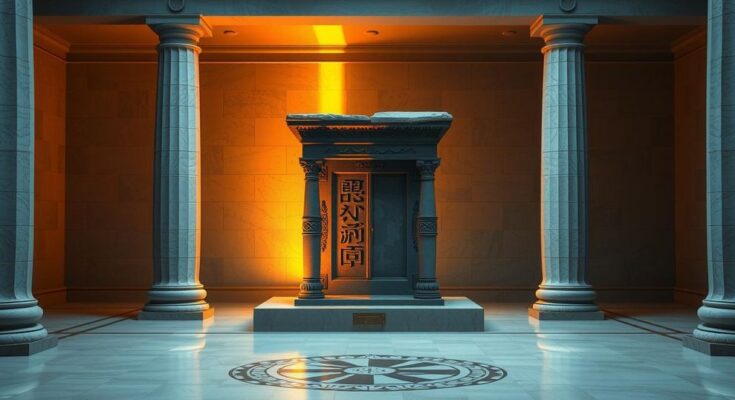The World Governments Summit 2025 in Dubai illuminated the profound role culture plays in reviving cities facing crises. During a pivotal session, UAE Minister of Culture Sheikh Salem bin Khalid Al Qassimi and UNESCO Director-General Audrey Azoulay underscored the revival of Mosul’s cultural heritage, a prime UNESCO initiative largely supported by the UAE, serving as a global restoration framework.
Highlighting one of UNESCO’s most ambitious undertakings, the ‘Revive the Spirit of Mosul’ initiative showcased the power of collaborative efforts. The UAE took the lead, acting as the foremost sponsor while committing substantial resources to reconstruct Mosul’s significant historical sites, including the iconic Al-Nouri Mosque and two landmark churches.
Al Qassimi articulated the UAE’s dedication to cultural identity, stating, “Culture is a pillar of identity and a force for unity. Through projects like Mosul’s restoration, we reaffirm our commitment to preserving heritage as symbols of resilience and shared history.”
Beyond mere restoration, the initiative aimed to empower the local community, initially set to train 1,500 Iraqis but ultimately inspiring over 3,000 people in conservation skills. The initiative ensured that locals developed the expertise necessary for sustainable heritage management, preserving their legacy for future generations.
Azoulay emphasized the project’s community-driven approach, stating, “We followed what the people of Mosul wanted because this is their legacy. Using traditional materials and techniques, we ensured authenticity while investing in people. This is how we rebuild not just cities, but identities.”
The UAE’s cultural preservation initiatives extend globally, with numerous projects funded since 2002, including restoration efforts in Jerusalem and regions across Africa. Each project is centred on enriching people’s lives, reinforcing historical narratives, and building enduring capacities.
Al Qassimi remarked, “The UAE’s efforts in Mosul sparked a ripple effect. Once we committed, the EU and 13 other nations followed. This is the essence of multilateralism – turning shared responsibility into action.”
As the world navigates rapid technological change, the preservation of cultural heritage must adapt. Al Qassimi highlighted the integration of technology, noting the discoveries made during the Al-Nouri Mosque restoration, pondering the possibilities that AI brings for future archaeological endeavors.
Amidst geopolitical tensions, the success of the Mosul initiative showcases how institutions such as UNESCO can mobilise and unite nations for the greater good, as Azoulay stated. “UNESCO has the credibility to mobilise nations for cultural preservation.”
Concluding on a hopeful note, Al Qassimi reinforced the spirit of cooperation, asserting, “We live in polarised times, yet I remain hopeful. The Mosul initiative proves that when nations commit to action, multilateralism thrives.”
The summit, bustling with over 30 heads of state and 140 governmental representatives, served as a grand platform for exploring crucial global trends, igniting the interconnected flames of cultural revival and preservation in the hearts of nations.
At the World Governments Summit 2025 in Dubai, the focus was on how culture can restore cities in crisis, exemplified by the UAE’s role in rejuvenating Mosul’s heritage. The ‘Revive the Spirit of Mosul’ initiative not only restored historical sites but also empowered local communities through training, setting a global standard for cultural preservation. Leaders shared inspiring insights on the importance of multilateralism in sustaining cultural identity, emphasizing that technology and community engagement play crucial roles in future projects.
The World Governments Summit 2025 highlighted the significant power of culture in revitalising cities in turmoil, with the UAE’s leadership in the Mosul restoration serving as an exemplary model. By prioritising community involvement and leveraging multilateral cooperation, the initiative underscores the essence of preserving cultural heritage for future generations, advocating the importance of unity in fostering identity. As nations collaborate, they can turn cultural challenges into opportunities for growth and resilience.
Original Source: www.wam.ae



